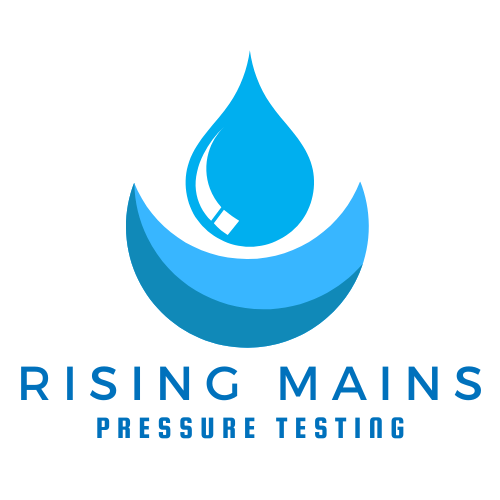Rising water mains are essential for distributing potable water vertically through buildings and facilities. Regular pressure testing is crucial to maintaining system integrity and preventing leaks.
We specialise in comprehensive rising mains pressure testing services. Our experts ensure water supply safety and compliance with regulations.
Contact Us
Rising mains transport water under immense pressure to upper floors. Over time, factors like corrosion and wear can compromise pipe strength, posing risks of ruptures, leaks, and contamination.
Regular pressure testing identifies vulnerabilities before failures occur. This preventative approach safeguards:
- Water quality by detecting leaks that enable ingress
- Public health by avoiding waterborne illness from contamination
- Property integrity by preventing costly water damage
- Compliance with water safety standards and local regulations
Our experienced technicians follow rigorous testing protocols for optimum safety and accuracy:
Our technicians examine pipework, joints, and fittings.
Mains are carefully filled, and entrapped air is removed.
Water is gradually pressurised to specified test levels.
Pressure readings are continually logged over the test period.
Data is analysed to identify pressure drops.
For any failures, we advise appropriate remediation.
Our teams maintain comprehensive knowledge of testing requirements. We navigate complex regulations to ensure full compliance for your location. Here’s a brief overview of the standards and regulations we adhere to:
- Water Supply (Water Fittings) Regulations 1999
- BS EN 805 Water Supply Requirements
- BS 8558 Buried Rising Mains Code of Practice
- Regional Water Company Specifications and Bylaws
Our qualified technicians leverage industry-leading testing equipment for precise results. Engaging our pressure testing experts delivers key advantages:
- Prevent downtime from unplanned leaks and pipe failures
- Avoid property and water damage repair costs
- Promote public health via a secure, uncontaminated supply
- Document testing for regulatory audits and due diligence
- Receive specialist advice on maintenance and replacement needs
The appropriate frequency for pressure testing rising mains is influenced by several key factors. Annual testing is a general guideline, but the optimal schedule should be tailored to the specific conditions and characteristics of your system.
- Pipe Age, Material, and Condition: Older pipes are more prone to developing leaks or weaknesses. Similarly, the pipe material impacts longevity. Prior inspections revealing existing corrosion or other deterioration also indicate more frequent testing is prudent.
- Soil and Water Conditions: The surrounding soil composition and water chemistry can accelerate or decelerate corrosion rates. Soils with high moisture, salt, or acidic content create environments more conducive to external pipe corrosion. Water supplies with high mineral content or low pH promote internal corrosion and scaling.
- Operational Criticality: The importance of the rising mains system to your facility’s operations impacts the acceptable risk tolerance for potential failures. Water supplies servicing critical operations, like healthcare, merit more conservative testing frequencies.
- Local Regulations: Regional regulations and water company policies often prescribe minimum pressure testing frequencies for rising mains based on location-specific factors.
By evaluating the unique variables for your rising mains, we can recommend an optimized pressure testing schedule. This data-driven approach allows you to minimise safety risks while avoiding excessive costs from unnecessarily frequent testing. Our experts work closely with you to strike the right balance for your operational needs.
In the UK, the cost of professional rising main pressure testing can vary based on several factors such as the size of the system, location, and testing requirements.
For a standard rising main setup in commercial or multi-story residential buildings, pressure testing typically costs between £500 and £1,500. This covers our time on site, use of testing equipment, data analysis, and documentation.
Larger rising main systems with extensive pipework or those in difficult-to-access locations may incur higher costs, ranging from £1,500 to £3,000 or more, due to increased labour and logistical complexity.
We understand that clients have different budgets and requirements. Rather than providing a one-size-fits-all price, we prefer to discuss your project details and provide a personalised quotation with no hidden fees. Our transparent pricing ensures you only pay for the rising main pressure testing services you actually require. We also offer competitive rates backed by our years of experience and commitment to professional service.
